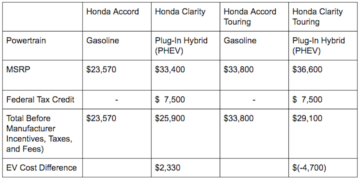
Last month, AAA released a survey showing that 20% of Americans (50 million) are likely to purchase an electric vehicle (EV) for their next vehicle. Eighty percent of respondents said that the primary motivator for making the transition to electric was a concern for the environment. Following closely, the second motivating factor for Americans’ shift to electric is cost. Two-thirds of the respondents to the AAA survey cited lower fuel and maintenance costs as a factor for going electric. As more Americans are informed about the financial and environmental benefits, it is anticipated that those numbers will increase.
Electrify the South seeks to increase awareness of the benefits of electric vehicles and offers a wide variety of informational opportunities to educate and empower Southerners about cleaner transportation choices. The information we share in our outreach recently sparked the interest of an event participant who had been considering a new car for her family. Check out the story below of new EV owner, Melissa Gallivan, and thoughts she recently shared with me about making the switch to electric.
Melissa Gallivan was initially looking at a Prius (hybrid) for her next car, but after hearing about the Federal Tax Credit that saves EV drivers up to $7,500 and the lower lifetime cost of EVs she started looking seriously at electric options. “It only made me more determined to go electric. When I found out it would be cheaper to drive electric, I didn’t see why I would drive a gas powered car; and equally, the overall pollution reduction and dependence on oil [were factors].”
She started doing extensive research on the internet narrowing down the search to plug-in hybrid electric vehicles (PHEV). After comparing other PHEVs she soon found the perfect match in the Honda Clarity. “We would like all electric. In the future, we will probably buy an all-electric vehicle, but for now, until the charging stations are more common, I like the gas backup idea.” Based on her travel needs, Melissa plans on ditching her dependence on gasoline and driving mostly electric. “With the 48-mile all-electric range, we’re doing our best to never use gas.”
Melissa’s driving habits are not unique. A study conducted by MIT found that 87% of drivers could switch to an EV and have their daily travel needs met without adjusting their commute or driving times even if they cannot charge during the day.
Melissa likes driving the Clarity because of “the smooth ride, the visibility, it’s spacious, good-looking and I love the fact of not having to go to the gas station.” She thinks the trunk space is also “fantastic, and the legroom is very comfortable.” The biggest thing she loves is that “it’s fun to drive!,” which was a surprise to her. She had originally pictured a boxy car that would be hesitantly going down the road. She was also happy to learn that based on the battery size of the Clarity. it does qualify for the full $7,500 Federal Tax Credit (not all plug-in hybrids are eligible). Additionally, she learned that driving electric means that she qualifies to drive in the HOV lane in Florida. She has applied through the state for the special tag.
Melissa’s response when I asked her why she went electric was, “It’s better from the environmental point of view and from a cost point of view.” What could be better?! It seems that more and more American drivers are reaching similar conclusions.
Comparing the Purchase Prices of PHEVs and Comparable Gasoline Vehicles
Source: Honda Clarity/Accord Website


As demonstrated in the chart above, with an average fuel savings of $770 dollars a year it will take 3 years for the Honda Clarity EV to be cheaper to own than it’s comparable Honda Accord. After owning the car for 10 years, you would save $5,390 in fuel costs.
For the Clarity Touring/Accord Touring comparison, assuming the same $770 a year in fuel savings, it is almost $5,000 cheaper to own the Clarity Touring EV at the purchase price. After owning the Clarity Touring EV for 10 years, drivers would save $7,700 in fuel costs. Additionally, those costs do not include the savings found in other maintenance costs like fewer oil changes.
For more information about vehicles and the benefits of driving electric please see our website and sign up at NextCar Pledge. To learn more about hosting an informational meeting, please contact Dory at [email protected].